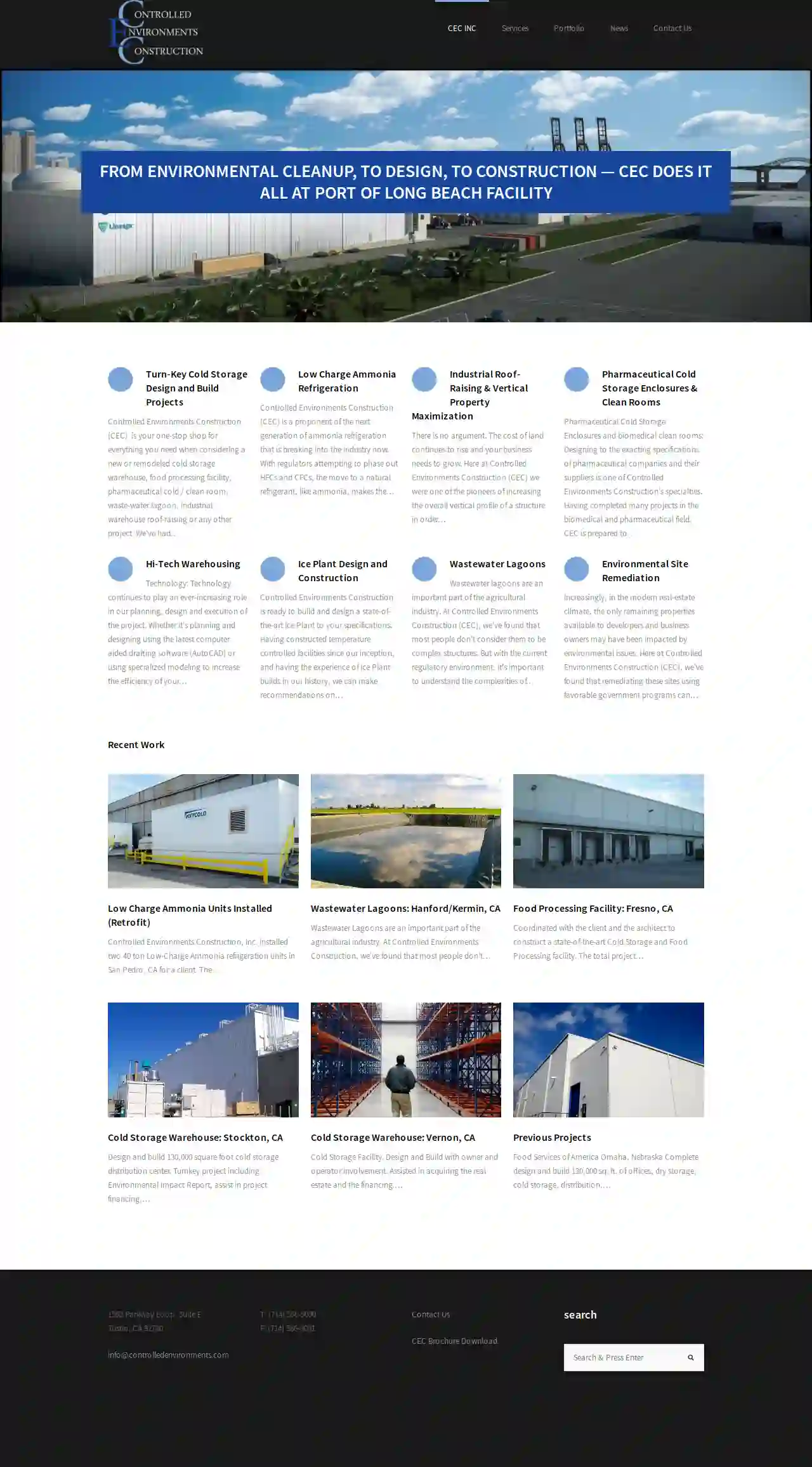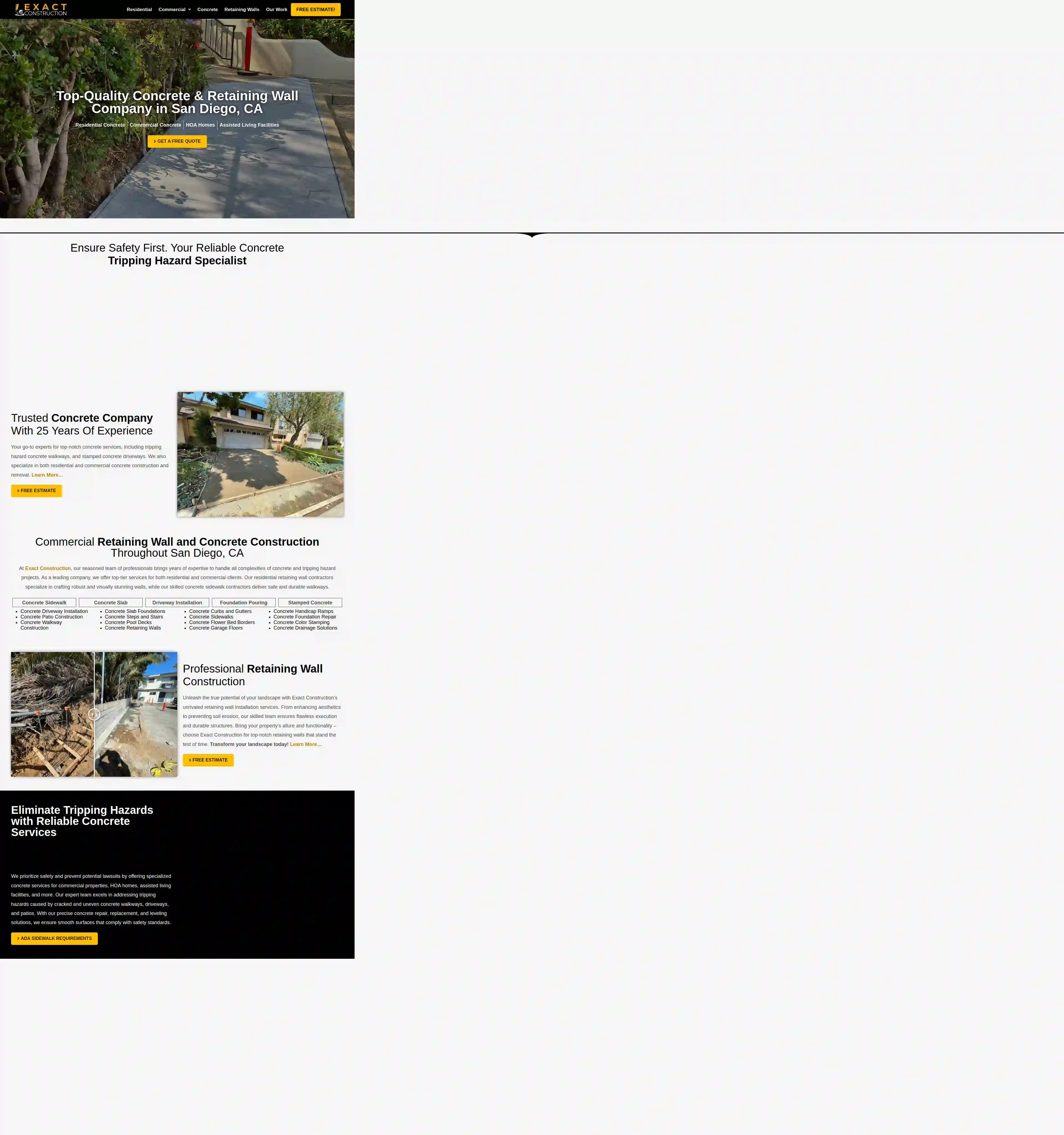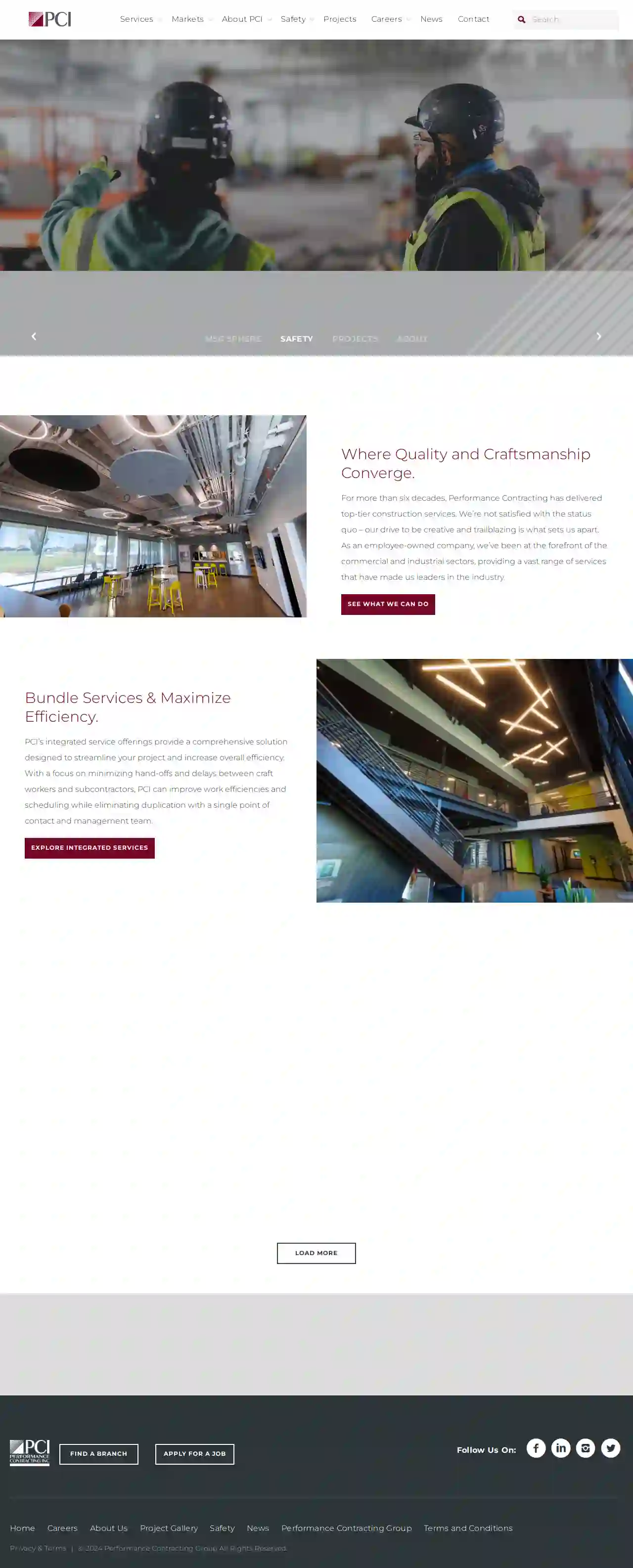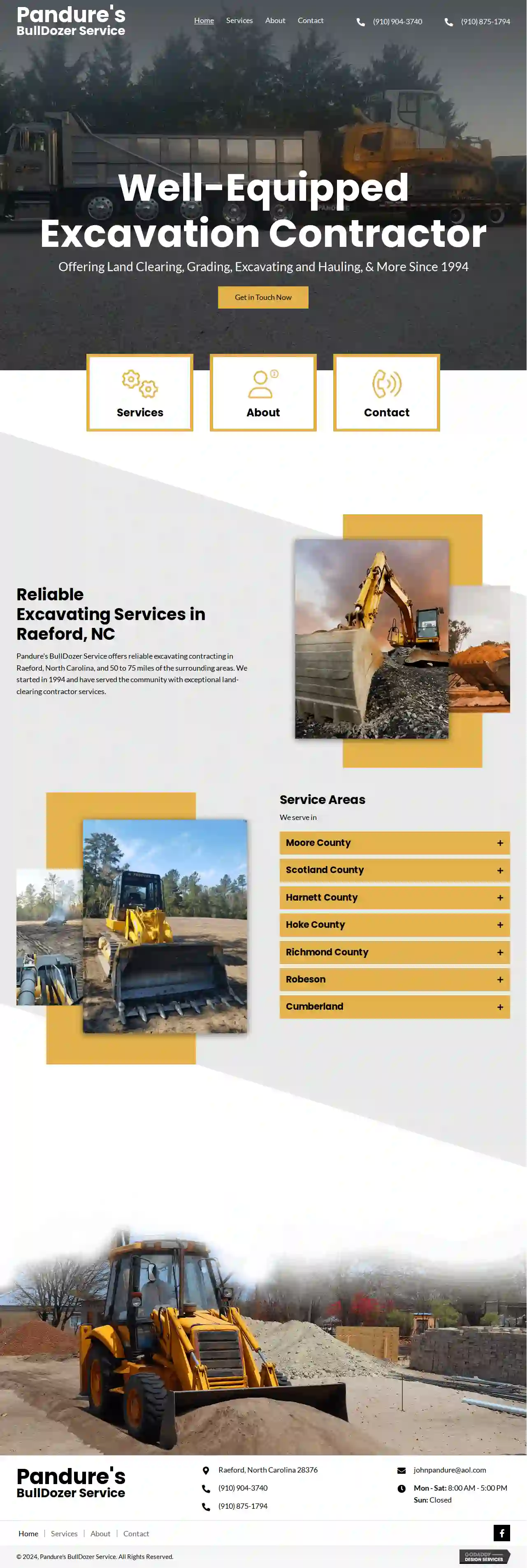Dirt Contractors Riverside
Best Dirt Removal in Riverside
Receive multiple Dirt Hauling quotes for your project today! Compare profiles, reviews, accreditations, portfolio, etc... and choose the best deal.

3-D Paving and Sealcoating
4.730 reviews2801 N University Drive, Ste 302, Coral Springs, 33065, US3-D Paving: Your South Florida Commercial Paving Experts Looking for a reliable and experienced commercial paving contractor in South Florida? Look no further than 3-D Paving and Sealcoating! We're a family-owned and operated business based in Coral Springs, FL, serving all of greater South Florida, including Broward County, Palm Beach County, Miami-Dade County, and beyond. Our team of skilled technicians has the expertise to handle any asphalt or concrete paving project, big or small. We're committed to delivering exceptional quality, precision, and attention to detail, ensuring your project is completed to the highest standards. We're proud to be a trusted paving contractor for property managers, community managers, HOAs, community associations, developers, small business owners, and civil engineers. We offer a comprehensive range of commercial asphalt and concrete services, including: • Asphalt Paving • Asphalt Repair • Asphalt Overlay • Asphalt Milling • Asphalt Sealcoating • Parking Lot Line Striping and Asphalt Striping • Parking Lot & Roadway Signage • Pavement Markings • Thermoplastic Striping and Markings • Reflective Pavement • Concrete Sidewalks • Concrete Slabs & Building Pads • Concrete Curbs & Curbing • Concrete Gutters • Concrete Ramps • Concrete Grinding • Concrete Parking Lots • ADA Compliance • Site Development • Property Maintenance • Drainage and Drainage Repair Services • Paver Bricks • Speed Bumps • Bollard Installation At 3-D Paving, we believe in building strong relationships with our clients. We treat them with the same respect and care we'd expect ourselves. We're deeply invested in the communities we serve, and we're committed to providing exceptional service and value to every customer. Ready to get started on your commercial paving project? Contact us today and let us show you why we're the best paving contractor for all your needs. We look forward to providing you with outstanding paving services soon!
- Services
- Why Us?
- Gallery
Get Quote
Souza Construction & Electric
52 reviews586 So. Farmersville Blvd., Farmersville, 93223, USSouza Construction Inc. is a growing construction business, striving ever forward to become a premier general contractor. From our beginning as a “one-man show”, until our present state as a “multi-faceted” team, one thing has remained constant, a commitment to customer service. It is this commitment that has helped Souza Construction Inc. nearly double its sales every year for the last four years. We firmly believe that it will be this continuing commitment that will assist us in continuing this phenomenal growth pattern. Essential to this excellent service are our capabilities as a builder and a business. THE SOUZA COMMITMENT Souza Construction Inc. has committed itself to recruiting and training leaders in both the construction and professional world. Assembling a team of this caliber is not a quick or simple process, but requires diligent research, highly refined discernment, and continuous assessment. However, it is just this level of commitment and attention to detail that sets us apart. Souza Construction Inc. has made this our primary goal: understanding our customers and their needs, utilizing excellence in the field and in administration, and combining this with an unwavering commitment to customer satisfaction; this is Souza Construction Inc.
- Services
- Why Us?
- Testimonials
- Gallery
Get Quote
Optimal EarthWork
51 reviews3070 Garden Ave, San Jose, 95111, USTransforming Landscapes with Precision: Earthworks Experts We harness the raw potential of the earth to create extraordinary transformations and deliver awe-inspiring results for every project we undertake. Excavation & Grading Swimming Pool Demolition Demolition
- Services
- Why Us?
- Accreditations
- Our Team
- Testimonials
- Gallery
Get Quote
Controlled Environments Construction, Inc.
11562 Parkway Loop, Suite E, Tustin, 92780, USControlled Environments Construction (CEC) is your one-stop shop for everything you need when considering a new or remodeled cold storage warehouse, food processing facility, pharmaceutical cold / clean room, waste-water lagoon, industrial warehouse roof-raising or any other project. We've had the pleasure of working with a wide range of clients, from small businesses to large corporations, and we're always happy to help our clients achieve their goals. We're committed to providing our clients with the highest quality construction services, and we're always striving to improve our processes and procedures. We're proud of our work, and we're confident that we can provide you with the same level of quality and service that we've provided to our other clients. Contact us today to learn more about our services and how we can help you with your next project.
- Services
- Why Us?
- Gallery
Get Quote
KR Land Development LLC: Land Clearing and Site Prep
516 reviewsOrange, USAbout KR Land Development At KR Land Development, our mission is to transform natural landscapes into safe, sustainable, and accessible spaces. With a deep respect for the environment and a commitment to efficiency, we provide expert land clearing services that pave the way for responsible land development. Our goal is to balance the needs of our clients with the preservation of nature, delivering innovative solutions that create a harmonious coexistence between humanity and the land. We are dedicated to improving the accessibility, safety, and utility of our clients’ properties while minimizing our impact on the environment. By aligning cutting-edge technology with eco-conscious practices, we aim to be leaders in the industry, leaving a legacy of well-cleared land and a healthier planet for future generations. Ready to Get Started On Your Land Clearing Project? We've Got You Covered! If you are looking to get started on your next land clearing project, we are here to help! KR Land Development offers free consultations to every client that is interested in our land clearing or property services. We are licensed & insured, protecting our clients and their property at all times throughout the land clearing process.
- Services
- Why Us?
- Gallery
Get Quote
Exact Construction
49 reviewsVista, USAbout Our Company Exact Construction is a trusted demolition and concrete company in San Diego, CA. We specialize in concrete and tripping hazard projects for both residential and commercial clients. Our team of experienced professionals brings years of expertise to every project, ensuring quality and safety. Our Mission At Exact Construction, we are committed to providing our clients with the highest quality concrete services. We strive to exceed expectations by delivering exceptional craftsmanship, timely completion, and outstanding customer service. Our goal is to build lasting relationships with our clients, based on trust, integrity, and a shared commitment to excellence. Our Values Our core values guide everything we do. We believe in: Integrity: We operate with honesty and transparency in all our dealings. Quality: We are committed to delivering exceptional craftsmanship and exceeding client expectations. Safety: We prioritize the safety of our employees, clients, and the public. Customer Focus: We are dedicated to providing outstanding customer service and building lasting relationships. Innovation: We embrace new technologies and techniques to enhance our services and deliver the best possible results.
- Services
- Why Us?
- Our Team
- Gallery
Get Quote
Fontana Concrete Company
3.73 reviewsFontana, USFontana Concrete Company | Flat Work and Masonry Contractor Our team is ready for any concrete project all year round for the homeowners in Fontana! For instance, Concrete or masonry services may be needed to fix cracks or seal gaps in driveways, sidewalks, patios, brick walls, and other areas on your property. If any of this sounds like it applies to you, then contact us today! We will schedule a free estimate with one of our experts to provide a quote tailored to your needs. Give us a call at (909) 766-9768 to get free estimates. Top of the Line Concrete and Masonry Contractor in Fontana, California Fontana Concrete Company is the leading concrete and masonry company in Fontana. We specialize in a wide variety of services, including concrete, patios, sidewalks, pools, garage floors, and more! One of our most popular services is installing fresh concrete – we specialize in working with homeowners to make sure you get exactly what you need. No matter your needs or budget, we have a solution for you! Contact us today at (909) 766-9768 to learn more about how we can help give your home that perfect finishing touch. Fontana Concrete Company understands that when it comes time to improve or add on to your property, one of the first things people think about are their driveways and walkways – they’re key features when it comes time to sell a house or show off your landscaping. We offer many different concrete services, including stamping, coloring, and decorative work, to make sure you get the look you want – all at an affordable price! Fontana Concrete Company has been working in Fontana for many years, and our experience means we know what works best when it comes time to renovate or improve your property. When you choose us as your contractor of choice, you can expect quality craftsmanship and honest pricing that won’t break the bank! Our commitment is 100% customer satisfaction, so call us today at (909) 766-9768 for a free estimate on any of our products or services.
- Services
- Why Us?
- Gallery
Get Quote
new b excavation
1Los Angeles, USPremier Excavation Solutions Expert excavation services for Los Angeles residential and commercial projects are the specialty of New B Excavation. We take great pleasure in being the best excavating service in Los Angeles. We are different because of our commitment and industry-leading knowledge. Any size project is precisely and effectively completed by our very skilled and experienced staff. Modern tools, careful planning, and careful attention to detail ensure that we both meet and exceed our clients' expectations. For industrial, commercial, and residential excavation, our committed staff puts up great effort to provide outstanding results. Discover why we're the best excavation company in Los Angeles by choosing us for a seamless, professional experience. Advance Construction Machinery We use the newest machinery and technology to make sure we do an outstanding job for all your digging needs in Los Angeles Professional Construction From laying foundations to full-scale construction, we provide services that meet to your needs.
- Services
- Why Us?
- Gallery
Get Quote
Performance Contracting Inc
4.427 reviewsSacramento, US- Services
- Why Us?
Get Quote
Pandure's BullDozer Service
58 reviewsRaeford, 28376, USPandure's BullDozer Service: Your Trusted Excavation Partner Pandure's BullDozer Service is a family-owned and operated excavation and land clearing specialist based in Raeford, North Carolina. We've been serving the community since 1994, providing reliable and professional services for all your land clearing, grading, excavating, and hauling needs. Our team is comprised of skilled professionals with decades of experience in the industry. We are committed to delivering seamless, safe, and trustworthy services, always prioritizing transparency and working within your budget. Whether you need land leveling for a new construction project, demolition work to clear an existing structure, or expert grading and excavating services, we have the expertise and equipment to handle it all. We are proud to serve a wide range of clients, including builders, developers, and homeowners in Raeford and the surrounding areas. At Pandure's BullDozer Service, we are dedicated to providing exceptional customer service and exceeding your expectations. Contact us today to discuss your project and let us help you bring your vision to life.
- Services
- Why Us?
- Testimonials
- Gallery
Get Quote
Over 3,943+ Excavation Pros onboarded
Our excavation contractors operate in Riverside & beyond!
ExcavationHQ has curated and vetted the Best Excavation Companies in Riverside. Find a top & trustworthy contractor today.
Frequently Asked Questions About Dirt Contractors
- Large-Scale Excavation: Assessing soil conditions, designing slopes, and ensuring stability for large excavation projects.
- Foundation Design: Determining the appropriate foundation type and depth based on soil bearing capacity and other factors.
- Retaining Walls: Designing retaining walls to stabilize slopes, prevent erosion, or create level areas on sloped sites.
- Slope Stability Analysis: Evaluating the stability of slopes and recommending measures to prevent landslides or erosion.
- Contaminated Soil Remediation: Developing and implementing plans to clean up contaminated soil.
- Erosion Control: Berms can intercept and slow down runoff, preventing soil erosion and sedimentation.
- Noise Reduction: Berms can act as noise barriers, reducing noise pollution from traffic, construction, or industrial activities.
- Visual Screening: Berms can block unsightly views, create privacy, or define property boundaries.
- Security: Berms can serve as security barriers, deterring unauthorized access or vehicle intrusion.
- Landscaping: Berms can enhance landscaping by creating elevation changes, providing planting areas, or defining garden beds.
- Clearly Define Your Project Scope: Provide the contractor with detailed information about your project, including the size of the area, the type and volume of dirt needed, the desired grading or leveling, and any specific requirements.
- Obtain Multiple Quotes: Request quotes from multiple reputable dirt contractors to compare prices, services, and experience. Ensure the quotes are comprehensive and include all project details.
- Verify Licensing and Insurance: Confirm that the contractor has the necessary licenses, insurance coverage, and a good safety record. This protects you from potential liabilities.
- Communicate Openly and Regularly: Maintain open communication with the contractor throughout the project, addressing any questions, concerns, or changes promptly. Regular updates and site visits can help ensure everything is on track.
- Document Everything: Keep written records of all communication, contracts, quotes, and invoices for reference and accountability.
- Designated Disposal Facilities: Contact your local waste management authority or search online for designated dirt and debris disposal facilities in your area. They accept various types of soil and construction materials.
- Recycling Centers: Some recycling centers accept clean fill dirt, concrete, or brick for reuse in other construction projects.
- Donation: If the dirt is clean and suitable for gardening or landscaping, consider donating it to community gardens, schools, or neighbors with landscaping projects.
What is a soil engineer, and when might I need one?
What is a dirt berm, and what are its uses?
What are some tips for working with dirt contractors?
What is the best way to dispose of excess dirt?
What is a soil engineer, and when might I need one?
- Large-Scale Excavation: Assessing soil conditions, designing slopes, and ensuring stability for large excavation projects.
- Foundation Design: Determining the appropriate foundation type and depth based on soil bearing capacity and other factors.
- Retaining Walls: Designing retaining walls to stabilize slopes, prevent erosion, or create level areas on sloped sites.
- Slope Stability Analysis: Evaluating the stability of slopes and recommending measures to prevent landslides or erosion.
- Contaminated Soil Remediation: Developing and implementing plans to clean up contaminated soil.
What is a dirt berm, and what are its uses?
- Erosion Control: Berms can intercept and slow down runoff, preventing soil erosion and sedimentation.
- Noise Reduction: Berms can act as noise barriers, reducing noise pollution from traffic, construction, or industrial activities.
- Visual Screening: Berms can block unsightly views, create privacy, or define property boundaries.
- Security: Berms can serve as security barriers, deterring unauthorized access or vehicle intrusion.
- Landscaping: Berms can enhance landscaping by creating elevation changes, providing planting areas, or defining garden beds.
What are some tips for working with dirt contractors?
- Clearly Define Your Project Scope: Provide the contractor with detailed information about your project, including the size of the area, the type and volume of dirt needed, the desired grading or leveling, and any specific requirements.
- Obtain Multiple Quotes: Request quotes from multiple reputable dirt contractors to compare prices, services, and experience. Ensure the quotes are comprehensive and include all project details.
- Verify Licensing and Insurance: Confirm that the contractor has the necessary licenses, insurance coverage, and a good safety record. This protects you from potential liabilities.
- Communicate Openly and Regularly: Maintain open communication with the contractor throughout the project, addressing any questions, concerns, or changes promptly. Regular updates and site visits can help ensure everything is on track.
- Document Everything: Keep written records of all communication, contracts, quotes, and invoices for reference and accountability.
What is the best way to dispose of excess dirt?
- Designated Disposal Facilities: Contact your local waste management authority or search online for designated dirt and debris disposal facilities in your area. They accept various types of soil and construction materials.
- Recycling Centers: Some recycling centers accept clean fill dirt, concrete, or brick for reuse in other construction projects.
- Donation: If the dirt is clean and suitable for gardening or landscaping, consider donating it to community gardens, schools, or neighbors with landscaping projects.